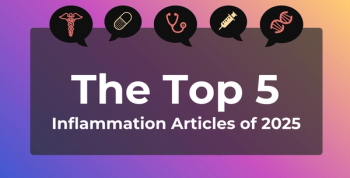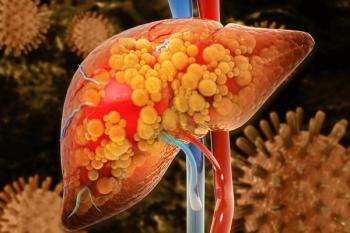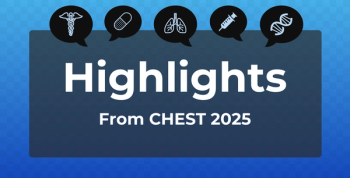
Study Examines Effect of Biologics on IgE Levels in Urban Settings
This study was prompted by recent findings that ultra-low IgE levels (IgE <2.5 kU/L) may be linked with a higher risk of cancers.
A recent study sought to investigate the effect on IgE levels when treating
High IgE levels are linked with atopic conditions.
The retrospective study identified all patients who were treated at Montefiore Medical Center in the Bronx, New York City, between 2014 and 2019 with 1 of the 3 groups of biologics: dupilumab (which targets the interleukin [IL]-4 receptor alpha), omalizumab (which binds to free serum IgE) and mepolizumab, benralizumab or reslizumab (which tragets IL-5 and IL-5 receptor alpha).
Most patients—there were 361—were female and Black and Hispanic. Overall, they received 1 biologic.
Researchers recorded their last IgE level before starting the biologic, and recorded all IgE measurements during treatment. Only 21.6% of the patients had measurements of their total serum IgE levels both before and after treatment began available for analysis.
Overall, patients included in the analysis had an average of 2 (1.8) IgE measurements/patient in addition what was recorded at baseline.
Researchers examined the changes by biologic. For dupilumab, median IgE level in patients fell by 40% (from 157 kU/L, interquartile range [IQR], 245.3 to 94 kU/L; IQR, 149.2, P = .001) after a mean of 132 (98) days after starting therapy.
For omalizumab, median IgE rose by 22%, from 337 kU/L, IQR, 629.5-411 kU/L; IQR, 1051; P = .035) after a mean time of 715 days (419).
In the group receiving the IL-5 biologics, there was no change in overall median IgE level from baseline, from 359 kU/L, IQR, 376-357 kU/L, IQR:850, P = .368), after a mean time of 386 days (346).
The change in IgE levels for the dupilumab group was statistically different from the changes in the other groups of biologics.
The researchers examined the percentage change in median IgE level, compared with baseline. looked at when IgE changes were more likely to occur—earlier in the course of treatment, or later, compared with baseline.
For patients on dupilumab, there was a statistically significant median decrease in total serum IgE within the first 16 weeks of treatment (−14%) and an even steeper decline later (−59%).
In the omalizumab group, there was a marked increase (90%) early in treatment, but not later. In the group of patients receiving mepolizumab, reslizumab, and benralizumab, there were too few values recorded in the first 16 weeks of treatment to analysze, and no statistically dignificant change was found after 16 weeks.
None of the patients who had recorded IgE levels prior to starting treatment became IgE deficient.
The researchers said further studies would be useful to clarify a number of issues, including “the long-term effect of biological agents on IgE levels, the clinical utility and the frequency of measuring the IgE levels, whether changes depend on the allergic condition being treated, how low IgE levels develop after treatment, the duration of this decrease, and, most importantly, if the changes in IgE are associated with any unanticipated clinical findings.”
Reference
Beiser M, Rosenstreich D, Ferastraoaru D. Change in total IgE levels in inner city patients receiving monoclonal biological agents for allergic disorders. Clin Exp Allergy. Published online December 9, 2022. doi:10.1111/cea.14259
Newsletter
Stay ahead of policy, cost, and value—subscribe to AJMC for expert insights at the intersection of clinical care and health economics.









